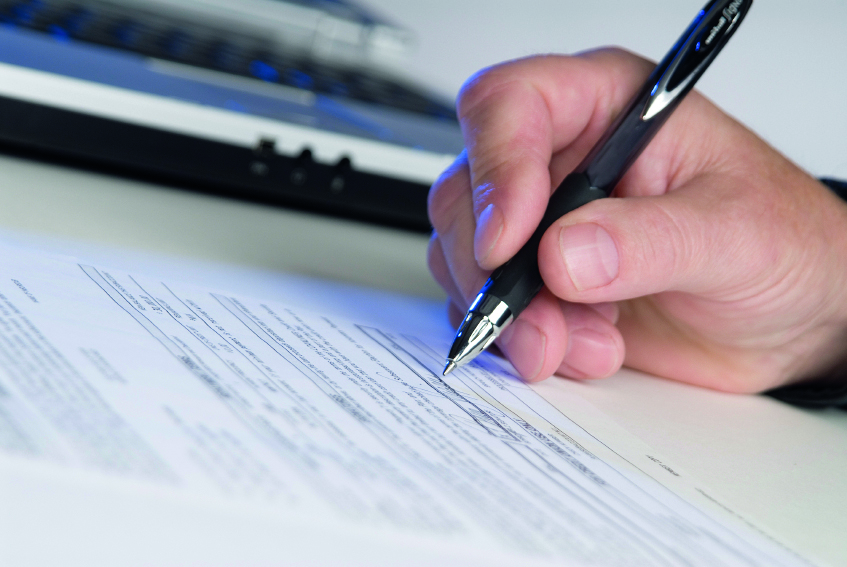15 ways to reduce house moving stress
Looking for ways to reduce house moving stress? We don't blame you – it can be an anxious time. But there are lots of ways to make the whole process easier – we might almost say enjoyable – as these expert tips show


Get small space home decor ideas, celeb inspiration, DIY tips and more, straight to your inbox!
You are now subscribed
Your newsletter sign-up was successful
Looking for ways to reduce house moving stress? We don't blame you. There's so much to organise when you're moving that the added stress of feeling stressed really is something we could all do without. So, how to ward it off? One way is to be super-organised as early as possible. Another is to plan moving day itself like a military operation. But, if you've never done it before, or haven't moved house for ages, how can you know what you should or shouldn't be doing?
We asked a member of the Real Homes team, who moved house three times in 18 months (don't ask) to give you the benefit of her experience with these expert tips. Use our house moving checklist to find out everything you need to know about getting organised. And find out more about buying, selling and moving on our property hub page.

1. Make the most of your second viewing
You can reduce house moving stress by asking important questions early. So, if the first viewing is about getting a feel for the house and deciding you want to buy, the second (or even third) viewing is all about practicalities. Go armed with a list of questions and don’t leave until they’re answered. Obviously this will be harder if the viewing is with an agent rather than the owner, but they’re being paid to sell the house so should still provide you with the answers you need, even if they come back to you afterwards. Here are a few to consider:
- Where are the water, gas and electricity metres located?
- Where is the fuse box?
- Where is the water stopcock?
- How does the boiler work?
- How do the kitchen appliances work?
- Which days are the bins/recycling collected on?
- How does the burglar alarm work?
2. Make friends with the sellers
When you go for that second or third viewing, ask the vendors for an email address or phone number in case you need anything. Depending on the relationship you build up, you may be able to organise collecting the keys on moving day without having to go to the estate agents. You could even ask them to leave the fridge and boiler on ready for you.
It’s also handy post-move when you suddenly discover you don’t know which shade of grey they used to decorate the hallway and it needs touching up.
3. Transfer your funds early
Once a completion date has been set, the majority of hold ups tend to be because funds haven’t gone through in time. If you’re due to move on a Friday, get your deposit transferred to your solicitor the Friday before to make sure you’re not the one holding things up. It might be worth sending this article to everybody else in the chain, too.

4. Decide whether to DIY
If you're considering hiring a van and roping in friends and family to help with the move, bear in mind that it's a lot more work than hiring a removals company who can do both the packing, loading and unloading for you (don't under estimate the speed they offer with the packing; it's something to behold). However, if you're looking to save money, you might want to do all that work yourself. These are the pros and cons of using a removal company or hiring a van so you decide what’s best for you.
Get small space home decor ideas, celeb inspiration, DIY tips and more, straight to your inbox!
Using a removal company:
- Can provide boxes, wrapping and labels;
- Staff will lift the boxes and pack/unpack the van;
- Experts in moving and do this every day;
- Generally more expensive;
- You need to be ready for a set time;
- You're putting a stranger in charge of your possessions.
DIY van hire:
- Usually cheaper;
- You can set your own timetable;
- If the journey is short, you can do a number of runs;
- You need to factor in fuel costs;
- Harder physical labour;
- You need to be confident driving a van and will need an authorisation number from the DVLA;
- You still need energy for the unpacking after you've loaded, transported and unloaded...
5. Start packing once contracts are exchanged
We can’t emphasis this one enough. Even if you're hiring packers, if you do nothing in the run-up to the move, you'll regret it. As soon as contracts are exchanged, get your boxes and start packing – or at least decluttering.
This will give you time to think carefully about what you’re putting where. Crucially, it will also give you chance to get rid of any junk – either take it to a charity shop or try selling it online. There are thousands of local swaps and sales groups on Facebook, as well as Gumtree, Ebay and Shpock.
6. Get admin done in advance
Do whatever you can in advance, in the run up to the move to a) reduce house moving stress and b) save you time afterwards when you're tired/unpacking/organising a refurbishment. Get ahead on redirecting post (or at least getting the paperwork lined up. It might be that you can set up switching your broadband to the new address in advance or registering with a new doctor's surgery, for example – anything that can make the few weeks after the move smoother will reduce house moving stress. Now might be the time to save money by switching energy suppliers, too.
7. Label your boxes smartly
As well as marking each box up with the room it will go into in your new house, use a numerical coding system, which helps organise the boxes:
1. Needed within the first week.
2 Needed within the first month.
3 Things you love but don’t strictly need (think books, old school work, photo albums, ice cream maker).
8. Work out where your furniture will go
Here's a good way to reduce house moving stress. Before you go to your second or third viewing, measure some of your larger pieces of furniture, like the sofa or a sideboard, so that you can ensure they will fit where you have them in your mind's eye. That way, on moving day itself, you can simply tell the removers (or your friends) where to put the sofa/sideboard, sure that it will fit where you're expecting it to.
9. Use sandwich bags for fixtures and fittings
There’s nothing worse than coming to put your bed/table/sideboard back up, only to find you can’t locate any of the screws or brackets anywhere. When you’re dismantling the items, pop all of the screws into a sandwich bag and tape it securely onto one of the pieces of furniture they’re for. No more lost screws. While you’ve got the tape out, use it to stick cables to the back of your TV and devices to stop them trailing.
10. Create a moving day kit
There are some things you won’t get through moving day without. Pop them in your car, rather than the van, so they’re with you at all times:
- Meter key
- Charged electric screwdriver
- Smartphone and charger
- Screwdriver (this will be useful for getting to your water metre)
- Packed lunch
- Biscuits
- Bottled drinks
- Glasses/mugs
- Kettle
- Teabags
- UHT milk
- Sugar
- Soap
- Hand towel
- Cleaning bucket
- Bleach
- Cloths
- Washing up liquid
- Toilet rolls
- Bin bags
- Vacuum
- Mop
11. Photograph your meter readings
You’ve got the keys, you’ve run around in excitement and already started planning a complete redecoration/extension/loft conversion. Before you do anything else, use your smartphone to take photographs of the meter readings. Then you can call the energy companies a couple of days later to start your accounts. Don’t forget to switch your TV licence over, too.
12. Clean up before the boxes arrive
However good a house looks when you’re viewing it, by the time the previous owners have packed up and moved out, it’s going to need a quick clean. Once the van is packed at your old house, head over to the new property in your car and give it a quick once over before the boxes arrive. You’ll never get another chance to clean without furniture in the way, so make the most of it!
13. Make your bed the night before
Take the hassle out of your first night in your new home by changing your sheets the day before you move. Then simply roll up the sheets, duvet and pillows and pop them in your car, ready to put straight onto the beds in your new house that evening.
14. What will you eat? Get it delivered
Trust us, after a day of moving, the last thing you’ll feel like doing is cooking. Get on TripAdvisor the week before you move and find the best-rated local takeaway, and order a really decent dinner for the night you move in. Crack open a bottle of something nice, too. And, get groceries delivered for the next morning – that way you can keep yourself well fuelled as you unpack.
15. Take a break
Mindfulness. Wellbeing. Whatever you want to call it, it's really important to take a break when you've just moved in. So, while you might want to unpack much of the living room, make the bedroom comfortable and get all your toiletries out, it's really worth taking time out for a coffee in a nice cafe up the road, an evening at the local cinema, a walk in the park. The packing will still be there when you get back.
More on house moving:
Laura Crombie is a journalist and TV presenter. She has written about homes and interiors for the last 17 years and was Editor of Real Homes before taking on her current position as Content Director for Country Homes & Interiors, 25 Beautiful Homes Period Living and Style at Home. She's an experienced home renovator and is currently DIY-renovating a 1960s house in Worcestershire. She's been quoted on home design and renovating in The Times, The Guardian, The Metro and more. She's also a TV presenter for QVC and has been a commentator for Channel 4 at Crufts dog show.
